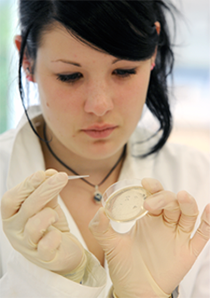| |
 |
 |
Innovation in Life Sciences as a Driver for Growth:
A French American Challenge
There is now a widespread consensus on the idea that the economy in the 21st century relies on innovation.
In our developed countries the biotech industry, and more broadly the Life Sciences sector, is one of the most successful economic growth engines. For example, in Massachusetts, this sector has created the highest number of jobs in the last few years. Likewise, France has identified biotechnologies as a strategic sector for the future and invested €2.4bn in Health and Life Sciences research programs in 2012.
Economic growth in the Life Sciences sector relies almost exclusively on scientific discoveries and innovations. They mostly originate in universities and academic laboratories throughout the world. Nurturing, channeling and managing all this creativity to convert it into economic activity, and new products for human use, is a daunting but exciting challenge.
In fact, in Life Sciences, developing new products from discoveries made by scientists can have a huge impact on human health, but often requires unusually high investments in time, people and financial resources. More and more frequently, such development is becoming international and involves collaboration and partnerships between many stakeholders, including academic laboratories, small biotech companies, large pharmaceutical companies, contract research organizations, advocacy groups, government agencies, public and private financial institutions. New ways of ensuring efficient collaboration are emerging, mostly driven by the concept of open innovation based on cooperation and sharing between partners. Strategic alliances and entrepreneurship are two key components in this regard.
Inserm, Inserm Transfert and Inserm Transfert Initiative are teaming up with the French Consulate in Boston to organize FAID 2013, the French American Innovation Day, to be held on December 5th, and 6th, in Boston. The objective of this symposium is to analyze the challenges encountered in this seemingly mutually exclusive task of harboring and channeling creativity from research into business and ultimately healthcare. We will also look at how these challenges are met in France and the United States while we will furthermore seek to foster strategic partnerships between our two countries.
There will be 4 roundtables, introduced by a keynote speaker, on the first day of this symposium:
• Open innovation: fad or strategy?
• Alliance management: a true necessity to combine cultures
• Entrepreneurship: a Pandora box or a holy grail?
• Patient advocacy associations: a catalyst for innovation.
During the second day, French and American Life Sciences startups will present their operations.
The symposium will be held at the Joseph B. Martin Conference Center at Harvard Medical School. During these two days emphasis will be put on promoting networking and establishing international relationships among all stakeholders in Life Sciences, a sector that plays a crucial role in terms of converting innovation into economic growth. |
 |
|
| |
|
|
|
|
|
